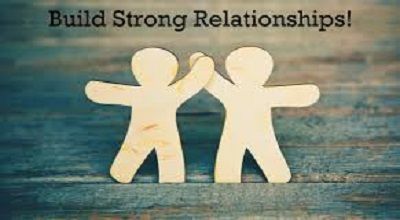Principal Builds Strong Relationships
Now here, How One Principal Builds Strong Relationships? Building strong relationships as a principal is an ongoing process that requires time and effort. It’s about creating a culture of trust, respect, and collaboration that benefits everyone in the school community.
Building strong relationships is essential for a school principal as it fosters a positive school environment, enhances communication, and ultimately contributes to the success of students and the school as a whole.
Here are some strategies a principal can use to build strong relationships:
- Active Listening: One of the most important skills for any leader is active listening. Principals should listen to their teachers, staff, students, and parents to understand their concerns, needs, and ideas. Make sure people feel heard and valued.
- Approachability: Be approachable and accessible to everyone in the school community. Encourage open-door policies and create opportunities for informal interactions.
- Visibility: Be visible in the school. Walk the halls, attend events, and engage with students, teachers, and parents. This shows that you are involved and interested in the school’s day-to-day life.
- Empathy: Understand and empathize with the challenges and concerns of teachers, staff, and students. Empathy helps build trust and rapport.
- Transparency: Communicate openly and honestly. Share information about school policies, decisions, and goals. When people understand the “why” behind decisions, they are more likely to support them.
Extra here…
- Collaboration: Encourage collaboration and teamwork among teachers, staff, and students. When people work together towards common goals, it strengthens relationships.
- Professional Development: Invest in the professional development of your teachers and staff. Show that you care about their growth and success.
- Recognition: Recognize and celebrate the achievements of teachers, staff, and students. Acknowledging their hard work and accomplishments goes a long way in building positive relationships.
- Conflict Resolution: Address conflicts promptly and constructively. Teach problem-solving and conflict-resolution skills to students and staff.
- Parent Engagement: Build strong relationships with parents by involving them in the school community. Hold regular meetings, conferences, and events to keep parents informed and engaged.
More read…
- Consistency: Be consistent in your actions and decisions. Inconsistency can erode trust and damage relationships.
- Feedback: Seek feedback from teachers, staff, students, and parents regularly. Use this feedback to improve and make informed decisions.
- Cultural Sensitivity: Be sensitive to the cultural and diverse backgrounds of your school community. Respect and embrace differences to create an inclusive environment.
- Adaptability: Be willing to adapt to changing circumstances and needs. Flexibility is essential for building strong, resilient relationships.
- Lead by Example: Model the behavior and values you expect from others. Your actions set the tone for the entire school community.
Note:
Building strong relationships as a principal is an ongoing process that requires time and effort. It’s about creating a culture of trust, respect, and collaboration that benefits everyone in the school community. In summary,, One Principal Builds Strong Relationships with their students & parents.
